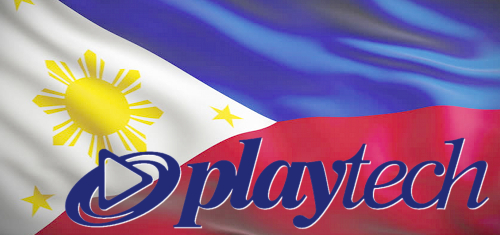 Online gambling technology firm Playtech plans “aggressive” acquisition strategy after revenue rose nearly two-fifths last year, but its founder’s criminal past and the company’s growing presence in Asian black markets could threaten those plans.
Online gambling technology firm Playtech plans “aggressive” acquisition strategy after revenue rose nearly two-fifths last year, but its founder’s criminal past and the company’s growing presence in Asian black markets could threaten those plans.
Playtech revenue soared 38% to €630m in 2015, while earnings rose 22% to €252m although net profit fell 3% to €135.8m following a rise in acquisition-related expenses and the imposition of new gaming taxes in the UK market.
Casino remained Playtech’s top vertical, with revenue rising 26% to €308.7m. Mobile revenue more than doubled from 2014 and mobile penetration improved six points to 16%.
Sports betting improved 22% to €32.2m, with most of the gains coming from UK licensees of Playtech’s Mobenga platform. However, the vertical is expected to decline in 2016 as three UK licensees have opted to switch from Mobenga to in-house sports products.
Services revenue improved 17% to €155.6m while land-based revenue jumped 79% to €29.8m thanks to a full year’s contribution from Aristocrat Lotteries (since rebranded as Videobet Interactive). Absent acquisitions, land-based revenue was up 40%.
Bingo improved 17% to €20.5m thanks to a six-point gain in mobile play, which now accounts for 20% of all bingo activity. Playtech’s new financials division added €60m while the troubled iPoker network remained Playtech’s sole decliner, falling 19% to €11.2m.
GREYING MARKETS
Playtech says regulated markets accounted for 41% of its 2015 gaming revenue, up five points from 2014. But Playtech’s single biggest jurisdictional gainer last year was its Philippines-licensed operations, which serve primarily Asian grey- and black-markets. Philippine licensee revenue rose a hefty 49% from 2014 to €199.6m, accounting for 35% of total gaming revenue, up from 29% in 2014.
Revenue from Playtech’s Antigua and Curacao licensees declined 16% and 23% respectively, in 2015. Many of these jurisdictions’ licensees are believed to accept US customers – a claim that Playtech execs have vigorously disputed.
However, the Curacao-licensed Pinnacle Sports is a Playtech licensee, and the recent New York Times/Frontline documentary demonstrated the ease with which a Times reporter was able to sign up with and wager on Pinnacle from his New York office.
ACQUISITIONS SOUGHT BUT NOT GUARANTEED
Playtech’s links to US-facing operators could impact the company’s plans to use its hefty cash reserves to continue its merger and acquisition activities. Details are scant, but Playtech has been linked with Amaya Gaming CEO David Baazov’s bid to take his company private.
Playtech has yet to apply to participate in any US states that have launched regulated online gambling markets. This reluctance is largely attributed to the troubled history of Playtech founder and largest shareholder Teddy Sagi, who did prison time in Israel in the 1990s for stock fraud.
Sagi’s history could prove problematic for achieving a ‘suitable’ designation from US gaming regulators. While never confirmed, Sagi is believed to have loomed large in the “certain concerns” that UK and Irish regulators expressed in blocking Playtech’s 2015 bids to acquire financial trading firms Plus500 and Ava Trade.
Should Playtech participate in an Amaya privatization deal, Sagi’s record could prompt regulators to require him to divest his Playtech holdings. At the very least, online gambling opponents in states like California could use the Sagi connection to strengthen their ‘bad actor’ arguments against Amaya’s PokerStars brand.
Playtech has also been named as one of the frontrunners to acquire rival technology firm OpenBet, which supplies sports betting tech to many top-tier UK operators. Bookmakers William Hill are reportedly backing a rival bid by NYX Gaming.
